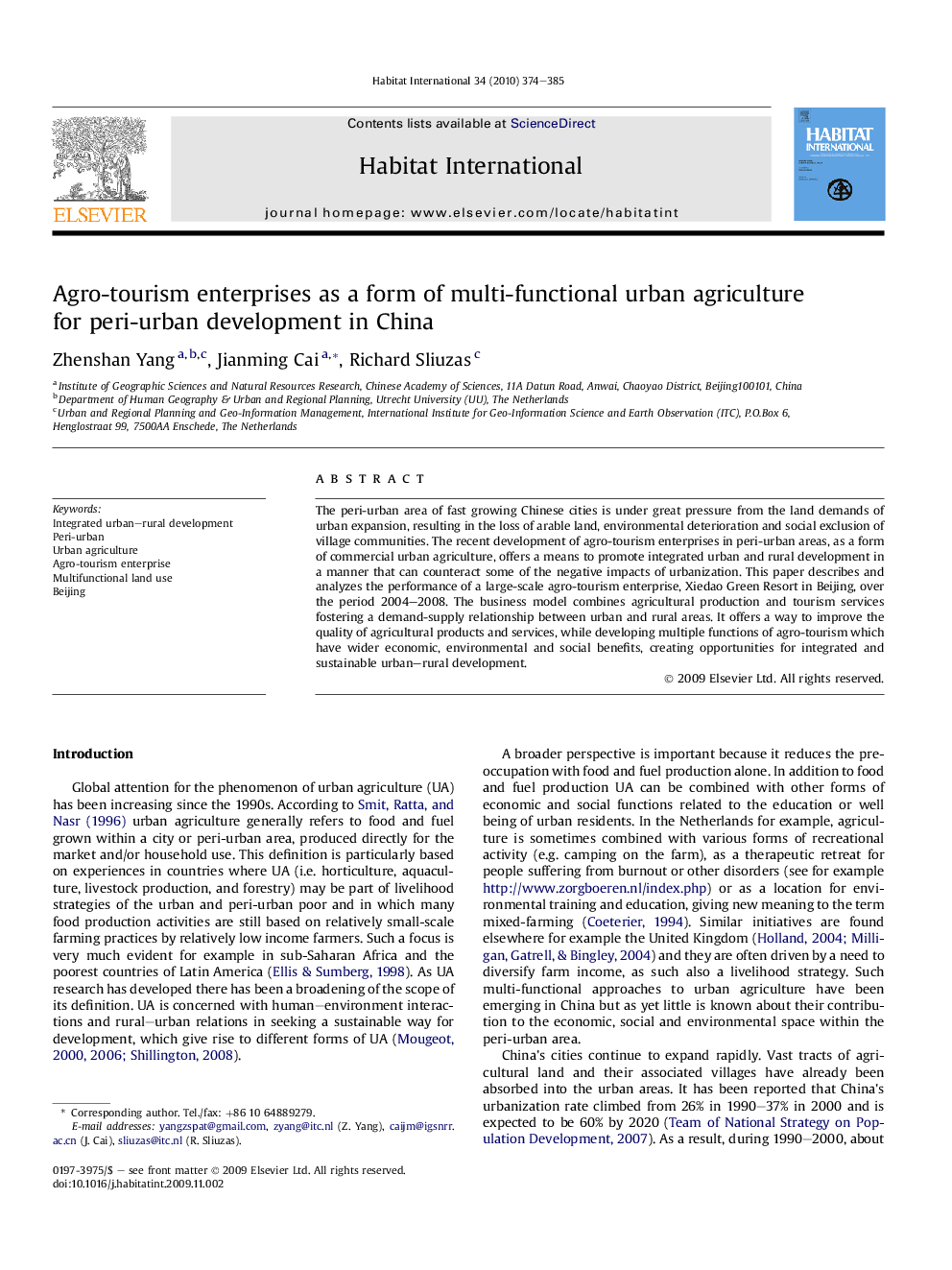| Article ID | Journal | Published Year | Pages | File Type |
|---|---|---|---|---|
| 1048267 | Habitat International | 2010 | 12 Pages |
The peri-urban area of fast growing Chinese cities is under great pressure from the land demands of urban expansion, resulting in the loss of arable land, environmental deterioration and social exclusion of village communities. The recent development of agro-tourism enterprises in peri-urban areas, as a form of commercial urban agriculture, offers a means to promote integrated urban and rural development in a manner that can counteract some of the negative impacts of urbanization. This paper describes and analyzes the performance of a large-scale agro-tourism enterprise, Xiedao Green Resort in Beijing, over the period 2004–2008. The business model combines agricultural production and tourism services fostering a demand-supply relationship between urban and rural areas. It offers a way to improve the quality of agricultural products and services, while developing multiple functions of agro-tourism which have wider economic, environmental and social benefits, creating opportunities for integrated and sustainable urban–rural development.
